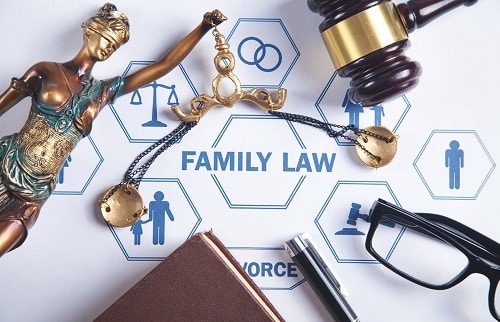Introduction
Facing criminal charges can be a daunting and stressful experience. Whether you’re charged with a minor misdemeanor or a serious felony, the consequences can be life-altering, affecting your freedom, career, and reputation. In such critical times, understanding your rights and having skilled legal representation is essential. This guide explores the crucial role of a criminal defense lawyer, how they can assist you, and what to consider when seeking legal help.
The Role of a Criminal Defense Lawyer
A criminal defense lawyer specializes in defending individuals and organizations accused of criminal activity. Their primary responsibility is to protect the legal rights of their clients and ensure a fair trial. They achieve this by providing legal advice, investigating the case, building a defense strategy, and representing the client in court.
- Legal Advice and Guidance:
A criminal defense lawyer provides crucial advice from the moment you are arrested or charged. They inform you of your rights, including the right to remain silent and the right to an attorney, ensuring you do not unintentionally incriminate yourself. - Case Investigation:
An effective defense requires a thorough investigation of the charges, the circumstances surrounding the arrest, and the evidence. Your lawyer will scrutinize police reports, interview witnesses, and gather evidence that might exonerate you or mitigate your charges. - Defense Strategy:
Based on the investigation, the lawyer will develop a defense strategy tailored to your case. This strategy could involve challenging the evidence’s legality, presenting alibis, or negotiating plea bargains to reduce charges or sentencing. - Court Representation:
If your case goes to trial, a criminal defense lawyer represents you in court. They present arguments, cross-examine witnesses, and work to convince the judge or jury of your innocence or the existence of reasonable doubt.
Why You Need a Criminal Defense Lawyer
Navigating the criminal justice system without professional legal assistance is risky. The legal system is complex, and the stakes are high. A criminal defense lawyer brings expertise in criminal law, an understanding of court procedures, and experience in handling similar cases. They can effectively challenge the prosecution’s case, ensuring your rights are protected throughout the legal process.
- Protecting Your Rights:
From the moment of arrest, a criminal defense lawyer ensures that your constitutional rights are upheld. This includes protection against unlawful searches and seizures, ensuring proper legal procedures are followed, and safeguarding your right to a fair trial. - Expertise in Plea Bargaining:
Often, cases are resolved through plea bargains, where the defendant agrees to plead guilty to a lesser charge in exchange for a lighter sentence. A skilled lawyer can negotiate the best possible terms for a plea bargain, which may significantly reduce your punishment. - Mitigating Consequences:
Even if a conviction seems likely, a criminal defense lawyer can work to minimize the consequences. This could involve advocating for reduced charges, lesser sentences, or alternative sentencing options such as probation or community service.
Choosing the Right Criminal Defense Lawyer
Selecting the right lawyer is crucial to your defense. Here are key factors to consider:
- Experience and Specialization: Choose a lawyer with extensive experience in criminal defense, particularly in handling cases similar to yours. Specialized knowledge and a proven track record can make a significant difference.
- Reputation and Reviews: Research the lawyer’s reputation in the legal community and among past clients. Positive reviews and testimonials can provide insights into the lawyer’s capabilities and client satisfaction.
- Communication: Effective communication is vital. Your lawyer should be accessible, responsive, and willing to explain legal complexities in understandable terms.
- Fees and Costs: Understand the lawyer’s fee structure, including any upfront costs and potential additional charges. Many lawyers offer initial consultations to discuss your case and fee arrangements.
Conclusion
A criminal defense lawyer plays a critical role in safeguarding your rights and navigating the complexities of the criminal justice system. Their expertise and guidance can significantly impact the outcome of your case, whether it’s securing an acquittal, negotiating a plea bargain, or reducing your sentence. If you’re facing criminal charges, it’s imperative to seek the assistance of a qualified criminal defense lawyer to ensure the best possible outcome for your situation.
—
Frequently Asked Questions (FAQ)
1. What should I do if I’m arrested?
If you’re arrested, remain calm and exercise your right to remain silent. Request to speak with a lawyer before answering any questions or signing documents. Remember, anything you say can be used against you in court.
2. How can a criminal defense lawyer help with plea bargaining?
A criminal defense lawyer can negotiate with the prosecution to reach a plea agreement, potentially reducing charges or securing a lighter sentence. They will evaluate the strengths and weaknesses of the case and advise you on the best course of action.
3. What is the difference between a public defender and a private criminal defense lawyer?
A public defender is a court-appointed lawyer provided to defendants who cannot afford private representation. While public defenders are qualified, they often handle large caseloads, which may limit their availability. A private criminal defense lawyer, on the other hand, is hired and paid by the defendant and can offer more personalized attention.
4. Can I represent myself in a criminal case?
While it’s legally possible to represent yourself, it’s generally not advisable due to the complexities of criminal law. A skilled criminal defense lawyer has the expertise to navigate legal procedures and build a strong defense, which can significantly impact the case’s outcome.
5. How can I find the right criminal defense lawyer for my case?
Research and consult with multiple lawyers to find one with experience in cases similar to yours. Consider their reputation, communication style, and fee structure. An initial consultation can help you assess if the lawyer is a good fit for your needs.
